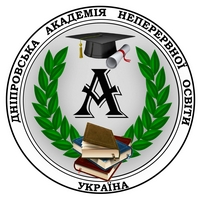PHILOSOPHY OF THE COURSE «SPIRITUALITY AND MORALITY IN THE LIFE OF A PERSON AND SOCIETY»
Abstract
The article examines the philosophical principles of the new course of moral direction «Spirituality and morality in the life of a person and society» for 5-6 grades of NUS which is identified as an effective resource for spiritual and value development of personality. It is emphasized that the spiritual and moral content of this course is a complex construct that cannot be reduced to a single way of considering it but requires the application of a methodology that focused on integrated vision of problems with the background of the multidimensional ideological space of spiritual and moral education taking into account the complementary achievements of the humanities. Is analyzed the philosophical basis of the system of values, which should guide the process of self-improvement of the individual in the direction of ьachieving a new quality of life, favorable for the spiritual development of both the individual and society. It is evaluated the actualization of the existential potential and interpretative activity of the individual when he or she studying the course for his/her creative self-realization and the acquisition of primary spiritual experience which is especially relevant in the conditions of crisis challenges in today’s society. It has been proven that the content of the course is built on humanistic principles and has a value-integrative character in order to solve the tasks of ethical and aesthetic development, influence on the inner world and actions of the individual, development of the ability for intercultural communication. It is substantiated that the content load of the course is built not on an ideological basis, but on a substantive basis. The authors found a methodological resource for solving the problem of basing spiritual and moral education on values that are not shared by everyone in the use of non-indoctrinal methods that were developed on the principles of phenomenology and constructivism. The phenomenological approach helps students to understand the essence of the spiritual processes that are offered for study. Constructivism ensures the rejection of the desire to inform the student of ideas formulated in a ready-made form. It is noted that the ethical system outlined in the course materials satisfies the intellectual needs of a growing personality regarding the explanation of the world system. It is a system that gives a holistic picture of perception and experience of reality and forms a special view of the world and a person’s place in it.
References
2. Духовність і мораль у житті людини та суспільства: модельна навчальна програма для 5–6 класів закладів загальної середньої освіти. URL:https://mon.gov.ua/storage/app/media/zagalna%20serednya/Navchalni.prohramy/2021/14.07/Model.navch.prohr.5-9.klas.NUSH-poetap.z.2022/Sotsial.zdorovyazberezhuv.osv.haluz-5-6-kl/Dukhovn.moral.v.zhytti.lyudyny.i.susp-5-6. kl.Zhukovskyy.ta.in.06.05.22.pdf (дата звернення: 24.06.2023).
3. Жуковський В. М., Сіданіч І. Л., Рогова О. Г. та ін. Духовні і моральні основи в житті людини: навчальний посібник для учнів 5 класу закладів загальної середньої освіти. Київ: Літера, 2023. 112 с.
4. Жосан О. Концептуальні засади та методична цінність модельної навчальної програми для 5-6 класів «Духовність і мораль в житті людини і суспільства». URL: https://znayshov.com/FR/15685/mv_58-263-268.pdf (дата звернення: 30.06.2023).
5. Костенкова С. Духовний фронт: про духовно-моральне виховання дітей і молоді. URL: https://www.oa.edu.ua/ua/info/news/2022/30-05-03 (дата звернення: 27.06.2023).
6. Лист МОН України № 4/948-22 від 22. 05. 2022 р. URL: http://yavoriv-rmk.kl.com.ua/2022/05/24/24-25-travnya-2022-roku-zaproshuyemo-na-dvodenyj-seminar-na-temu-prezentatsiya-modelnoyi-navchalnoyi-programy-duhovnist-i-moral-v-zhyttilyudyny-i-suspilstva/ (дата звернення: 27.06.2023).
7. Мудрик Л., Самолюк Г., Жаровська Н. та ін. Духовність і мораль в житті людини і суспільства. Конспекти уроків. 5 клас. Тернопіль: Мандрівець, 2022. 80 с.
8. Стралківська М. Як на Одещині планують виховувати у дітях духовно-моральні цінності: пресконференція. URL: https://slovoproslovo.info/yak-na-odeschini-planuyut-vihovuvati-u-dityah-duhovno-moralni-tsinnosti-preskonferentsiya (дата звернення: 29.06.2023).
9. Hay D. Suspicion of the Spiritual: Teaching Religion in a World of Secular Experience. British Journal of Religious education, 1985. V. 7 (3). pp. 140‒147.
10. Peters R. S. The Justification of Education / Philosophy of Education /ed. By Peters R. S. Oxford University Press, 1973. pp. 239‒267.
11. Smart N. The Phenomenon of Religion. By Ninian Smart. Macmillan Press, London, 1973. 157 p.

 ISSN
ISSN  ISSN
ISSN 

